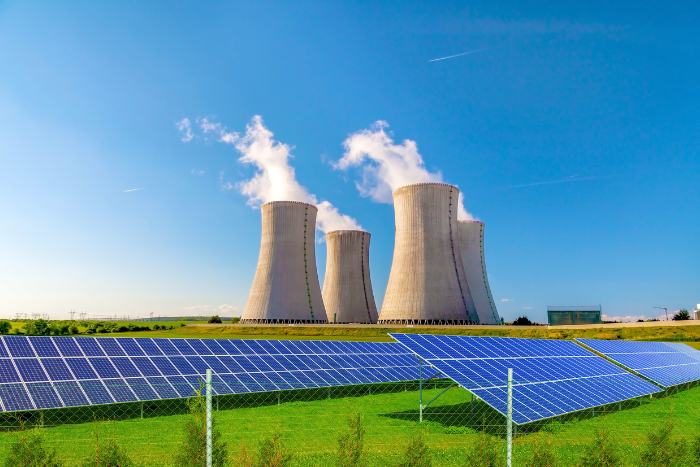Solar installations in India dropped 44.1% in the calendar year (CY) 2023, with a capacity of 7.5 GW added against 13.4 GW in 2022, according to Mercom India’s Q4 & Annual 2023 India Solar Market Update. Large-scale solar installations dropped 50.8% in 2023—from 11.7 GW in 2022 to 5.8 GW last year. Large-scale solar installations constituted 77.2% of the total annual capacity additions, while rooftop solar made up the remaining 22.8%.
Mercom added that module price drops in Q3 led to increased orders, but grid compliance and last-minute connectivity issues due to new regulations caused project commissioning delays. The Centre has avoided imposing penalties for project commissioning delays to acknowledge that completed projects are facing challenges in adhering to the new regulations for connectivity. The government aims for larger project numbers and feels high penalties and low tariffs could lead developers to abandon projects, Mercom reported.
World’s biggest solar company Longi Green warns West not to cut out Chinese suppliers
Citing industry experts, Financial Times reported that the price of solar panels “produced without Chinese involvement in countries like the US would be ‘double’ [their current cost]”. Dennis She, vice-president of Chinese solar manufacturer Longi Green Energy Technology, said that increasing imports from China would create more “downstream” jobs, such as in construction of new solar developments, as well as engineering, design and installation, the interview notes. “Kill[ing] most of the jobs from the downstream to protect 1% [of the European jobs in solar manufacturing] – it doesn’t make sense,” the Financial Times quotes She as saying. According to research by Wood Mackenzie, the newspaper adds, “China is set to continue to lead solar technology and dominate more than three-quarters of the world’s solar…manufacturing capacity” for at least three more years. Concerns in western countries about China’s “unfair trade practices” have led to the Chinese solar industry “expanding its manufacturing footprint closer to offshore customers,” it says. She noted that Longi is increasingly “trying to work with countries”, including through local joint venture partners, to set up more solar production capacity and avoid geopolitical risk.
Tesla to set up rooftop solar panel plant, asks Indian govt for subsidies
Electric carmaker Tesla approached the India government requesting subsidies as it plans to set up rooftop solar panel manufacturing plants in India. A selected partner will help Tesla to set up the plant in the country, while the latter will deploy its technology and sales expertise, reported the Mint, adding that the project coincides with the central government’s efforts to harness solar energy to light up 1 crore households by providing 300 units free electricity through an investment of ₹75,000 crore.
According to reports, the company also plans to invest $3 billion to set up a small car manufacturing unit in the country and follow up with $15 billion more into the battery ecosystem over a five-year period.
India initiates anti-dumping probe into imports of solar glass from China, Vietnam
Acting on allegations of Indian manufacturers, the Indian government initiated an anti-dumping probe into imports of certain solar glass from China and Vietnam, the Hindu reported. The Commerce Ministry’s investigation arm Directorate General of Trade Remedies (DGTR) is probing the alleged dumping of ‘Textured Tempered Coated and Uncoated Glass’ made or from China and Vietnam.
The product is also known by various names such as solar glass or solar photovoltaic glass in the market parlance. An application has been filed by Borosil Renewables Limited (country’s biggest glass manufacturer) on behalf of the domestic industry for the probe and the imposition of appropriate anti-dumping duty on imports.
Conflict on Red Sea trade route spike solar module prices by 20%
The Israel-Palestine war disrupted the Red Sea trade route resulting in as much as a 20% jump in solar module prices as the supplies are shipped from Asia to Europe. The route that carries 12% of the world’s seaborne trade. Mercom reported that since mid-November, heightened hostilities from Houthi militia targeting vessels passing through the Red Sea have resulted in fleets avoiding the key trade route. The Red Sea connects to the Suez Canal—the shortest sea route between Asia and Europe.
According to reports, half of UK exporters say attacks in the Red Sea are disrupting business. The British Chambers of Commerce says 55% of exporters report higher shipping costs and delays. The rebel group claims to be targeting vessels with links to Israel in an effort to show solidarity with Palestinians under Israeli bombardment in Gaza.
About The Author
You may also like
India’s EV revolution: Are e-rickshaws leading the charge or stalling it?
India’s solar output grows at slowest pace in six years in first half of 2024
India’s solar expansion threatened by transformer shortage
India to invest $360 billion in RE, infra in next seven years: Moody’s
China leads in annual offshore wind developments for the sixth year in a row: Report


